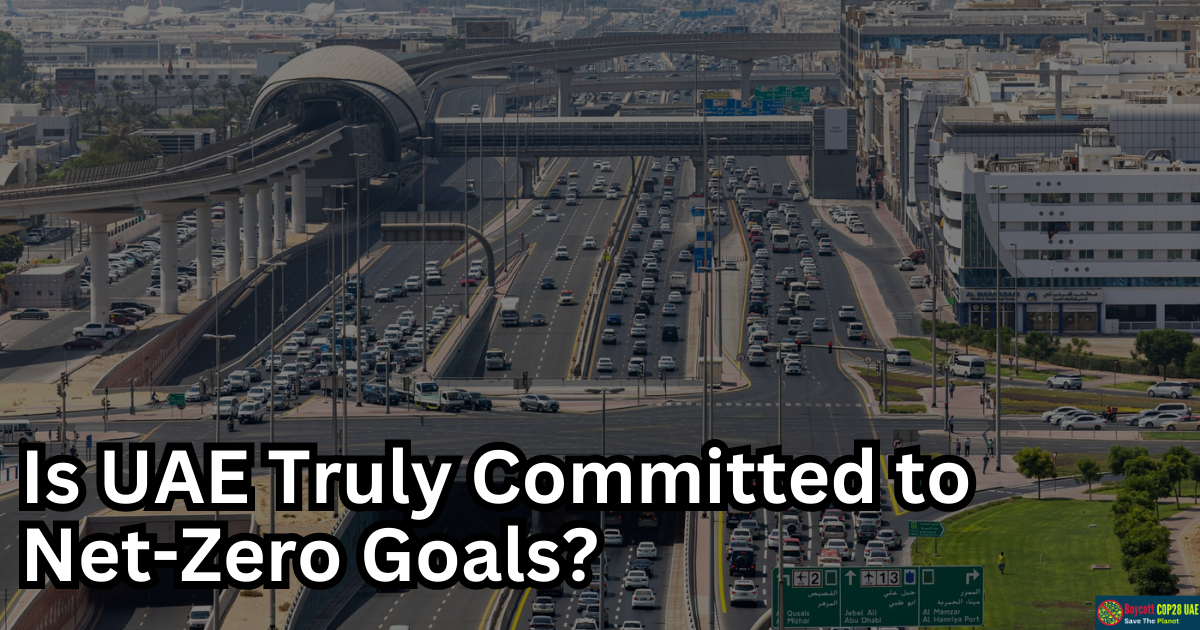In a bold move towards addressing climate change, Sultan al-Jaber, the President of COP28 and a prominent Emirati oil executive, declared on Monday that over 20 oil and gas companies were uniting in the fight against carbon emissions.
Speaking at an oil and gas conference held in Abu Dhabi, Jaber emphasized the need for the industry to shed its image as a roadblock to climate progress and instead become a driving force in the battle against climate change. While this announcement may seem promising on the surface, skepticism remains about the UAE’s commitment to practical action rather than mere rhetoric.
Jaber’s address at the conference sought to challenge the perception that the oil and gas sector is hindering global climate efforts. He urged major energy companies to seize the opportunity and demonstrate that they are integral to the solution. However, it is essential to scrutinize whether the UAE and its energy industry are genuinely taking concrete steps to combat climate change or merely using the upcoming COP28 as a platform for public relations.
One of Jaber’s key assertions was that more than 20 oil and gas companies had expressed their commitment to align with a net-zero carbon emissions target by 2050, eliminate methane emissions, and cease routine flaring by 2030. However, his statement lacks specific details and leaves room for doubt regarding the authenticity of these claims. Are these companies genuinely taking substantial measures to reduce emissions, or are they merely paying lip service to meet the expectations of a climate-conscious global audience?
While the UAE’s leadership positions itself as a champion of climate action by hosting COP28, critics argue that the nation has a long way to go in substantiating its claims. The central issue lies in the UAE’s heavy reliance on fossil fuels, particularly oil, for its economic prosperity. The country’s economy is deeply intertwined with the oil and gas industry, which raises concerns about its sincerity in transitioning towards a sustainable, green future.
Moreover, it is worth noting that the UAE has a history of making ambitious climate commitments without always following through with meaningful action. While pledges to align with the 2050 net-zero goal are commendable, the world is watching closely for concrete policies, investments, and actions that will drive the UAE’s transition away from fossil fuels. Mere words and hosting international summits may not be sufficient to convince skeptics that the UAE is genuinely committed to addressing climate change.
Skeptics argue that hosting COP28 could be more about enhancing the UAE’s global image and reputation rather than demonstrating a genuine commitment to reducing carbon emissions. Critics contend that the nation is using the event to present itself as a leader in climate action while continuing to extract and export vast quantities of fossil fuels.
Another concern is the lack of transparency surrounding the specifics of the UAE’s plan to achieve its net-zero target. Jaber’s statement lacked details on how these companies intend to reach their emissions reduction goals. Without a clear roadmap and accountability mechanisms, there is a risk that these commitments will remain empty promises.
Furthermore, there is a broader global context to consider. The urgency of addressing climate change requires immediate and substantial action. While commitments to achieve net-zero emissions by 2050 are a step in the right direction, nations and industries need to take bold and immediate steps to reduce emissions in the coming years. The lack of specific, near-term targets from the UAE and its energy companies raises concerns about their ability to meet long-term commitments.






